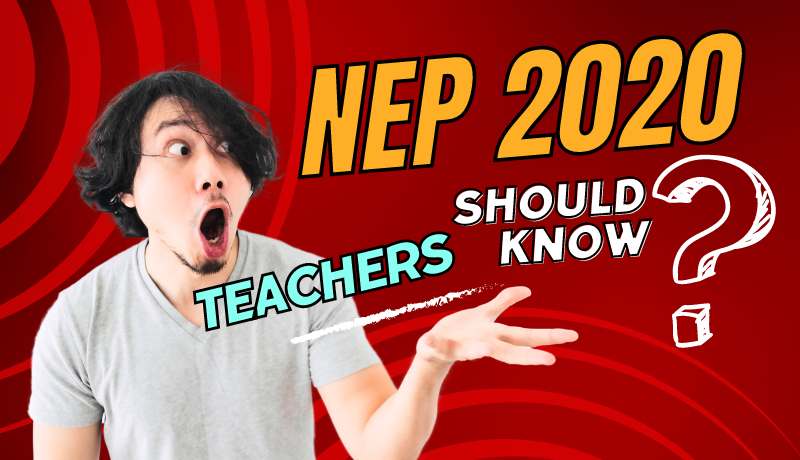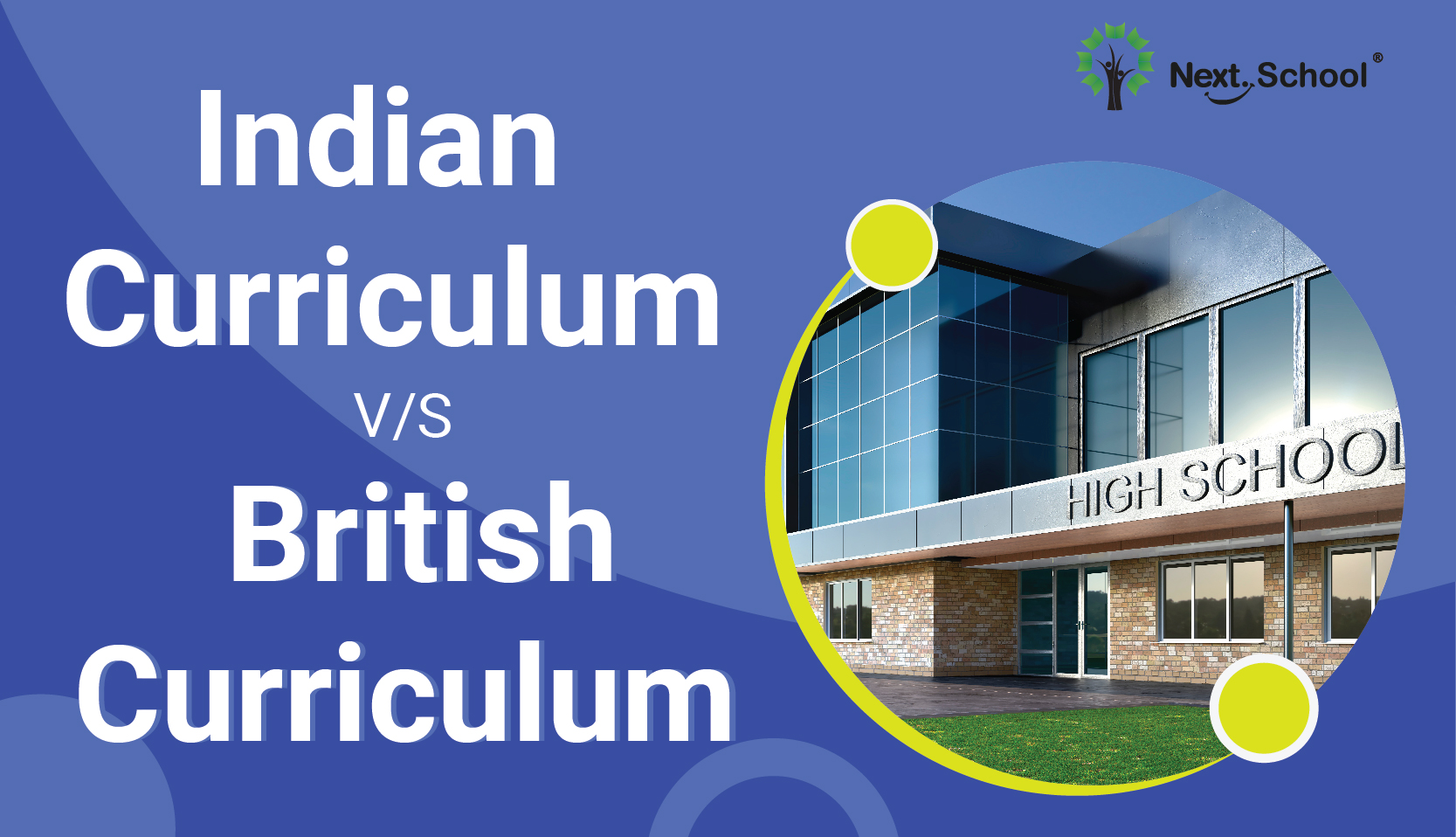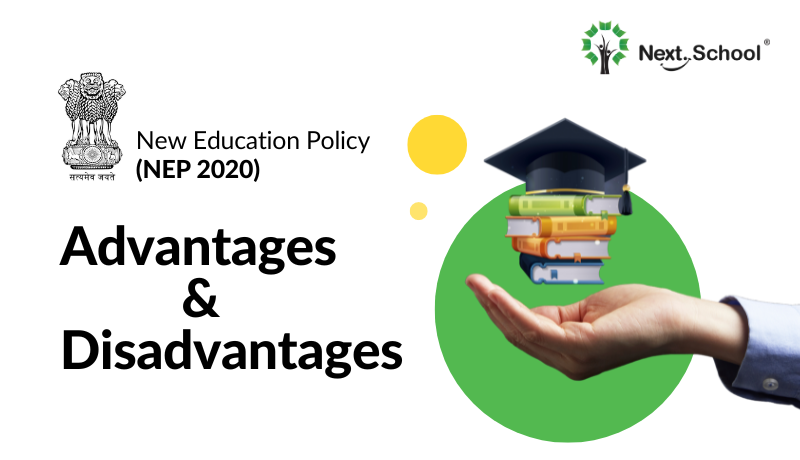The education landscape in India has undergone a significant transformation with the implementation of the New Education Policy (NEP) 2020. It is India’s first major change to its education system in more than 30 years. This policy aims to revolutionize the Indian education system, focusing on holistic development, skill-building, and a learner-centric approach.
As teachers, it is essential to understand the key provisions and implications of NEP to effectively navigate the changing educational landscape. In this teacher guide for 2023, we will delve into the core aspects of NEP and explore how it can shape your teaching practices.
Objectives of the New Education Policy (NEP) 2020
The New Education Policy (NEP) in India has several key objectives that aim to transform the education system.
- Universal Access: To ensure equitable and inclusive education for all, with a focus on marginalized and disadvantaged groups.
- Holistic Development: To foster the overall growth of students by promoting the development of their social, cognitive, physical, and emotional abilities.
- Flexibility and Choice: To provide students with flexibility and diverse educational pathways to suit their interests, abilities, and career aspirations.
- Critical Thinking and Creativity: To encourage the development of higher-order thinking skills to enable students to analyze, evaluate, and innovate.
- Technology Integration: To Integrate technology in education to enhance teaching and learning experiences, improve access to resources, and develop digital literacy skills.
- Teacher Training and Professional Development: Enhance teacher training programs and promote continuous professional development to equip educators with the necessary skills to implement the policy effectively.
These objectives collectively aim to create a learner-centric approach, and prepare students for the challenges of the 21st century, enabling them to succeed in a rapidly changing world.
Major changes under the New Education Policy
Change in the structure of school education from 10+2 to 5+3+3+4
One of the significant changes is the shift from the existing 10+2 schooling structure to a new 5+3+3+4 structure. This structure encompasses 12 years of schooling, divided into three stages: Foundational (ages 3-8), Preparatory (ages 8-11), Middle (ages 11-14), and Secondary (ages 14-18). The aim is to provide a strong foundation, emphasize critical thinking and holistic development, and enable greater flexibility in choosing subjects.
Integration of Early Childhood Care and Education (ECCE)
NEP 2020 recognizes the importance of early childhood education and emphasizes the integration of Early Childhood Care and Education (ECCE) into the formal education system. The new ECCE curriculum focuses on providing children between the ages of 3 and 6, with a holistic, play-based learning experience that promotes their overall (physical, social, emotional, and cognitive )development.
Multidisciplinary Approach
Furthermore, NEP promotes a multidisciplinary approach to learning, allowing students to choose subjects across various disciplines and explore their interests. This approach aims to break the traditional silos and encourage a comprehensive understanding of different subjects, fostering critical thinking, creativity, and innovation.
Reduction in Curriculum Content
The policy emphasizes reducing the curriculum content to core concepts and essential learning outcomes. This shift aims to reduce the burden on students and allow for a deeper understanding of fundamental concepts, enabling a more comprehensive learning experience.
Vocational Education
The new education policy gives significant importance to vocational education, recognizing its role in preparing students for employment and entrepreneurship. The policy aims to integrate vocational education into mainstream schooling, offering a wide range of vocational courses and opportunities for skill development.
Assessment Reforms
The policy emphasizes a shift from rote learning to competency-based assessments. It promotes formative and competency-based assessments, focusing on critical thinking, application of knowledge, and practical skills. The policy also encourages the use of technology for assessments and the inclusion of regular feedback to promote learning.
Effect of the New Education Policy on Teachers in 2023
- Shift in Teaching Practices: NEP necessitates a shift in teaching practices. Teachers will need to adopt a learner-centric approach that focuses on holistic development, critical thinking, and problem-solving skills. Teachers are encouraged to move away from rote-based instruction and instead promote interactive and experiential learning methods.
- Continuous Professional Development Opportunities: The new education policy recognizes the importance of continuous professional development for teachers. With the implementation of the policy, there will be a greater emphasis on providing training and development opportunities for educators. Teachers will have access to workshops, seminars, and online courses to enhance their teaching skills, update their knowledge, and stay abreast of the latest pedagogical practices.
- Multidisciplinary Teaching: The emphasis on a multidisciplinary approach requires teachers to collaborate across subject areas and integrate knowledge from various disciplines. Teachers are encouraged to explore interdisciplinary connections, design cross-curricular activities, and promote a holistic understanding of concepts. This will require teachers to expand their subject knowledge and find innovative ways to integrate different subjects into their lessons.
- National Professional Standards for Teachers (NPST): The NEP has introduced the NPST to set the minimum standards for teachers across the country. It outlines a teacher’s roles, competencies, and responsibilities at different levels of education. Teachers will be recruited through robust and transparent processes. Promotions will be merit-based, and a mechanism will be developed for multi-source periodic performance appraisals.
- Mentorship and Leadership Opportunities: NEP also recognizes the importance of mentorship and leadership in the education system. Teachers will be expected to take on mentoring roles, guiding and supporting their students and fellow educators. Additionally, teachers may also have the chance to take up leadership positions in schools, contributing to policy implementation and shaping the educational landscape.
Conclusion
The New Education Policy of 2020 presents an opportunity for teachers to transform their teaching practices and shape the future of education in India. By embracing the policy’s holistic approach, focusing on skill development, integrating technology, and nurturing cultural awareness, teachers can create a learner-centric environment that empowers students to thrive.
As you embark on this journey, continue to stay updated, collaborate with peers, and explore professional development opportunities to enhance your teaching effectiveness in alignment with NEP in 2023. Together, we can pave the way for a brighter and more inclusive education system.




